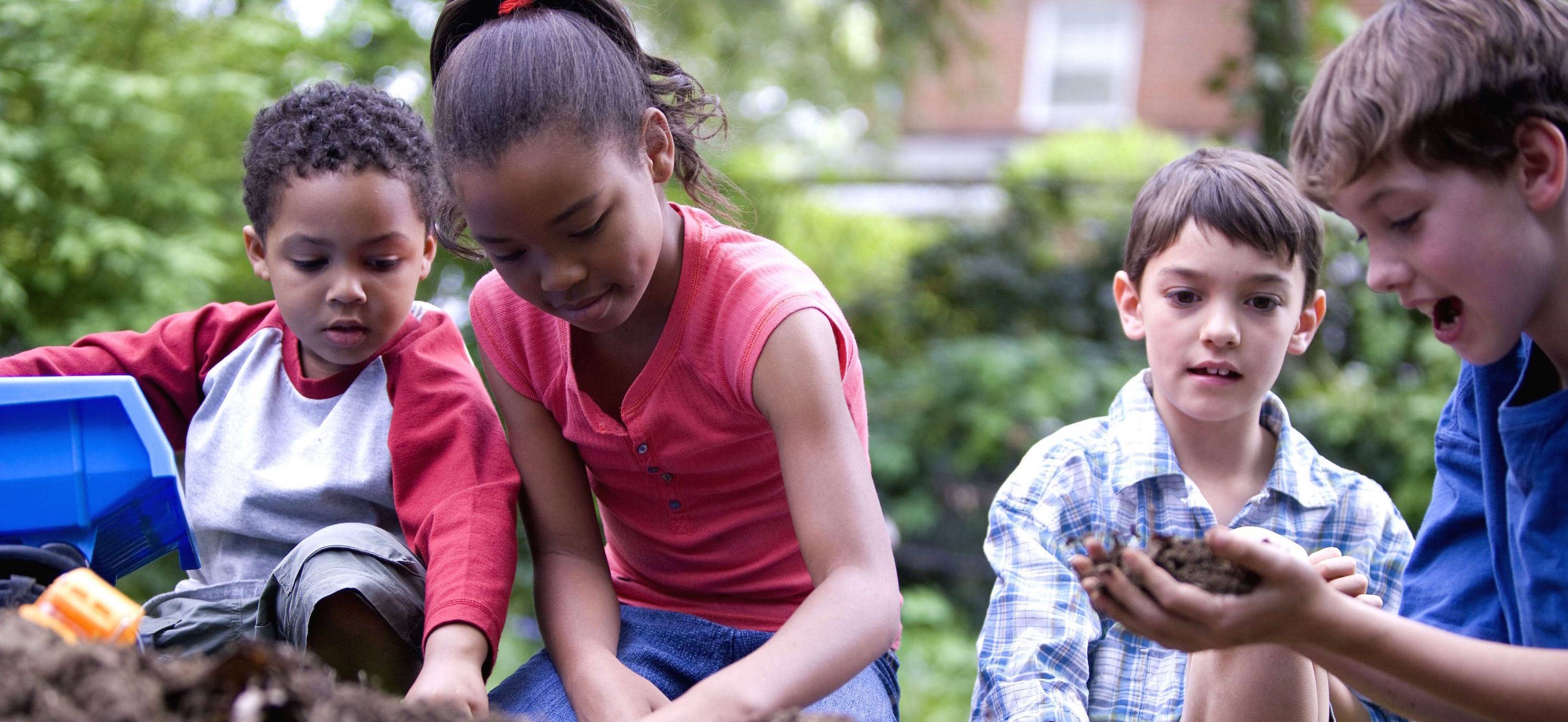Past Seminars
Parents in the Play Therapy Process

Speaker: Mary Bennett, PhD, LPC-S, RPT-S™, CCPT-T, CPRT-T
Date: November 4, 2022
Time: 9am - 4:30pm CST (in person at TXST)
CE Credit: 10 hours (6 contact; 4 non-contact)
Effective parent consultations are critical in every play therapy practice. Every therapist encounters challenging parents and struggles in responding therapeutically. This interactive presentation focuses on winning parents over and engaging them in the therapeutic process. The focus will be on the parent-therapist relationship looking at both therapist growth as well as learning skills to connect more with parents.
Learning Objectives:
- Learn to utilize their theory and interpersonal neurobiology in working with parents in the play therapy process.
- Learn the importance of self-awareness in working with parents in the play therapy process.
- Evaluate personal responses to challenging parent behaviors.
- Learn to incorporate neurobiology and development in the parent education component of the play therapy process.
- Learn two strategies to help parents understand their child’s world more deeply to facilitate the play therapy process.
- Learn three skills specific to working with divorced parents whose children are in play therapy.
Tentative Schedule:
- 9:00-10:30 - lecture, group discussion, activities
- 10:30-10:45 - break
- 10:45-12:00 - lecture, group discussion, activities
- 12:00-1:00 - break for lunch (on your own)
- 1:00-2:30 - lecture, group discussion, activities
- 2:30-2:45 - break
- 2:45-4:30 - lecture, group discussion, activities
Foundations of Gestalt Play Therapy: A Creative, Relational Approach to Play

Speaker: Renee Turner, PhD, LPC-S, RPT-S™
Date: July 8, 2022
Time: 9am - 4pm CST (in person at TXST)
CE Credit: 10 hours (6 contact; 4 non-contact)
Gestalt Play Therapy (GPT) is a dynamic, humanistic, process-oriented, experiential, and relationship-based approach to play therapy. Although GPT is identified as a historically significant play therapy theory, it is often misunderstood by the play therapy community. During this training, attendees will explore the therapeutic powers of play inherent to GPT and how the role of the play therapist compares and contrasts to other seminal or historically significant approaches. Attendees will explore the integration of the person-of-the-therapist, necessary for authenticity and genuine relating, a cornerstone in Gestalt theory. Drawing from key theoretical concepts, attendees will walk away with an enhanced understanding of how to conceptualize and treatment plan through the GPT lens. Join us as we learn through experiencing, the GPT way!
Learning Objectives:
- Discuss the history of play therapy and identify Gestalt Play Therapy (GPT) as a seminal play therapy theory
- Describe how the Therapeutic Powers of Play align with GPT
- Identify the utility of GPT across diverse populations and cultures
- Name at least five theoretical concepts associated with GPT
- Identify common creative adjustments and how these influence conceptualization and treatment planning when utilizing GPT
- Identify at least two expressive techniques for engaging sensation in the context of play therapy
If You Give a Play Therapist a Book: The Art of Bibliotherapy

Speaker: Lisa Remey, MEd, LPC-S, RPT-S, NCC
Date: June 10, 2022
Time: 9am - 4pm CST (in person at TXST)
CE Credit: 10 hours (6 contact; 4 non-contact)
Are you wondering how to integrate children’s books and interventions into your play therapy sessions? If so, this training is for you! Join us to explore the benefits of bibliotherapy as we explore children’s books and play therapy interventions. During this experiential training participants will gain skills and strategies to select appropriate books to suit your client and develop activities to deepen meaning and address common treatment goals. Case examples will be utilized to demonstrate paired interventions addressing emotional regulation, coping with anger, self-esteem, separation anxiety, and social skills.
Learning Objectives:
- Describe the rationale for integrating bibliotherapy into play therapy sessions
- Define how the benefits of bibliotherapy relate to the therapeutic powers of play
- List at least 10 books addressing common play therapy treatment goals
- Demonstrate understanding of how to evaluate the appropriateness of a book for a play therapy client
- Identify at least 10 play therapy interventions in collaboration with bibliotherapy
- Plan and create at least one bibliotherapy and play therapy intervention.
Play Therapy with Tiny Humans: Understanding and Partnering with Preschool Children (ages 2-5)

Speaker: Kimberly Jayne, PhD, LPC (OR), LPCC (NM), NCC, RPT-S
Date: May 13, 2022
Time: 1pm - 4pm CST
Location: via Zoom
CE Credits: 5 hours (3 contact; 2 non-contact)
Play therapy with preschool children (ages 2-5) is full of amazing opportunities and unique challenges. Play therapists need specific knowledge and skills to support young(er) children and their grown-ups. This seminar will focus on supporting play therapists in understanding the culture and experiences of young children, applying early childhood developmental knowledge in practice, promoting protective factors and resilience in early childhood through play therapy, preparing the playroom and facilitating the therapeutic process specifically with preschool children, and partnering with parents/caregivers to support preschool children and respond to common challenges for children ages 2-5.
Learning Objectives:
- By the end of the seminar, participants will be able to describe developmental experiences, skills, tasks and considerations for preschool children (ages 2-5) in play therapy.
- By the end of the seminar, participants will be able to apply specific strategies to make the playroom and play therapy process developmentally and culturally responsive for children age 2-5.
- By the end of the seminar, participants will be able to demonstrate specific therapeutic skills for facilitating play therapy with preschool children.
- By the end of the seminar, participants will be able to apply strategies for partnering with parents/caregivers and responding to common challenges for preschool questions.
Due to COVID-19 health concerns, this one-time online event has been approved by APT for 3 CONTACT CE Hours and 2 non-contact CE credits.
Connecting the Dots: Understanding Play Behaviors and Themes in Play Therapy

Speaker: Hayley Stulmaker, PhD, LPC-S, RPT-S, CCCPT-T/S
Date: March 25, 2022
Time: 9am-12pm CST
Location: via Zoom
CE Credits: 4 hours (3 contact + 1 non-contact)
It can be challenging to understand what children are expressing and processing in play therapy. Learn how to better interpret children's play in ways that can be meaningfully communicated to parents and can help inform your treatment approach.
Learning Objectives:
- Describe the differences in play themes and play behaviors for children in play therapy.
- Identify how children's context influences their play behaviors in play therapy.
- Analyze children's behaviors in clips of play therapy sessions.
Due to COVID-19 health concerns, this one-time online event has been approved by APT for 3 CONTACT CE Hours and 1 non-contact CE credits.
Playing to Heal & Empower: Using Play Therapy to Address the Needs of African American Children

Speaker: LaKaavia Taylor, PhD, LPC, NCC, RPT, Certified CCPT-S, Certified CPRT-S
Date: November 12, 2021
Time: 9am-12pm CST
Location: via Zoom
CE Credits: 4 hours (3 contact + 1 non-contact)
African American children have unique needs that are often overlooked and misinterpreted in clinical settings. In particular, they face heightened risks of developing mental health concerns due to historical adversity, systemic oppression, cultural differences, and socioeconomic disparities (Harris & Graham, 2014). The intersection of these factors significantly impacts the overall psychological adjustment of African American children and families. Specifically, the social, emotional, and behavioral strengths needed to navigate racial stress and trauma, societal perceptions, and microaggressions related to the lived experiences of being a Black child in American (Belgrave & Allison, 2015). However, African Americans often have limited access to culturally responsive counseling services. Therefore, clinicians need to be prepared to address the concerns of African American children. In this workshop, participants will learn how to use play therapy skills, interventions, and attitudes to address the unique needs and cultural strengths of African American children and families. Participants will also have opportunities to explore their own beliefs and biases.
Learning Objectives:
- Describe the unique mental health needs of African American children.
- Identify 4 signs of race-related stress and challenges that may appear in African American children's lives and play therapy sessions.
- Describe 3 relevant play therapy attitudinal traits, skills, and methods needed to work effectively with African American children and families.
- Identify 2 considerations for creating a culturally inclusive playroom for African American children.
Schedule:
-
9:00-10:45: Overview, experiential activity, discussion of content
-
10:45-11:00: Case study and discussion
-
11:00-11:50 Culturally relevant skills, methods, and playroom adaptations
-
11:50-12:00 Final processing and questions
Due to COVID-19 health concerns, this one-time online event has been approved by APT for 3 CONTACT CE Hours and 1 non-contact CE credits.
Cognitive Behavioral Play Therapy: It's More than Worksheets!

Speaker: Lisa Remey, MEd, LPC-S, RPT-S, NCC, IPT-CST
Date: July 23, 2021
Time: 9am-4pm CST
Location: EDU 4007
CE Credits: 4 hours (6 contact + 4 non-contact)
This seminar will explore the foundations of cognitive behavioral play therapy (CBPT), applying the basic tenants of cognitive behavioral therapy (CBT) to play therapy sessions. CBT is historically an empirically supported approach yet is often challenged regarding its effectiveness when working with children. This seminar will identify common misconceptions regarding cognitive behavioral play therapy while applying developmental theory to work with children and adolescents. Therapists will explore and learn how to integrate CBPT theory in their play therapy sessions. Play therapy techniques for early childhood through adolescence will be the focus. Training will consist of assigned reading, lecture, case examples, discussion, and experiential learning to increase understanding of play therapy through a cognitive behavioral lens.
Learning Objectives:
- Describe CBPT core concepts and structure of CBPT session Identify three myths of CBT and how related to CBPT
- Discuss and apply developmental theory and considerations when using CBPT with children and adolescents
- Describe how thoughts, feelings and behavioral concepts are reflected, modeled and integrated in play therapy session using both directive and nondirective approach
- List 5 cognitive behavioral play therapy techniques
- Demonstrate knowledge of aspects to consider in selecting cognitive behavioral play therapy interventions
- Identify 3 ways to bring awareness to cognitions in a play therapy session
Puppet Play Therapy International Seminar Series

Speaker: Elizabeth Kjellstrand Hartwig, PhD, LMFT-S, LPC-S, RPT-S
Date: July 11, 18, and 25, 2021
Time: 5pm-8pm CST
Location: Online Seminar via Zoom
CE Credits: 24 hours (12 contact + 12 non-contact)
The Institute for Play Therapy in partnership with the International Puppet Therapy Training is proud to present this international seminar series on Puppet Play Therapy with Children, Teens, and Families. Participants can earn 24 play therapy CEs through this interactive online seminar series. Puppet play therapy is the use of puppets in the context of play therapy with children, teens, and families. Puppets serve as a safe medium for children to explore problems and tell their story. This four-week online play therapy training series will take participants on a journey of puppet play therapy skills and interventions with young children, older children, teens, and families. Participants will learn what types of puppets are a good fit for play therapy. In this interactive training, participants will have the opportunity to create a puppet theater and different types of puppets each week of the training. Participants will also learn and practice facilitative and directive therapeutic responses that can be used in puppet play, with an emphasis on how to respond in the puppet metaphor. The training will culminate with a focus on family puppet play therapy.
Due to COVID-19 health concerns, this one-time online event has been approved by APT for 12 contact and 12 non-contact CE credits.
Anxiety in Kids: How Play Therapy Can Help

Speaker: Hayley Stulmaker, PhD, LPC-S, NCC, RPT-S, Certified CCPT-S/T
Date: June 18, 2021
Time: 9am-noon CST
Location: Online Seminar via Zoom
CE Credits: 4 hours (3 contact + 1 non-contact)
This workshop will describe the ins and outs of anxiety in children. You will learn how anxiety presents in children both in and outside of the playroom. We will discuss techniques for helping children directly in play therapy along with recommendations for working with parents to partner in reducing their children’s anxiety.
Learning Objectives:
- Identify key components of anxiety
- Describe how anxiety presents in children
- Describe 3 ways to intervene with children who are anxious
- Describe 2 ways to work with parents/caregivers to help reduce their child's anxiety
Due to COVID-19 health concerns, this one-time online event has been approved by APT for 3 CONTACT CE Hours and 2 non-contact CE credits.
Adaptations to Child-Parent Relationship Therapy

Speaker: Mary Morrison Bennett, PhD, LPC-S, RPT-S, Certified CCPT-T, Certified CPRT-T
Date: May 14, 2021
Time: 9am-noon CST
Location: Online Seminar via Zoom
CE Credits: 4 hours (3 contact + 1 non-contact)
Seminar description: Come learn how to utilize CPRT with Toddlers, Adolescents and Adoptive families! These populations have unique needs and require additional expertise. A strong knowledge of the traditional CPRT model is required. Video examples and interactive activities will facilitate learning.
Learning Objectives:
- Describe how Child Parent Relationship Therapy utilizes the Powers of Play to facilitate attachment and connection in the child-parent relationship.
- Identify 1 unique aspect of the Toddler model of Child Parent Relationship Therapy, a play therapy treatment protocol
- Identify 1 unique aspect of the Adolescent model of Child Parent Relationship Therapy, a play therapy treatment protocol.
- Identify 1 unique aspect of the Adoption model of Child Parent Relationship Therapy, a play therapy treatment protocol.
Due to COVID-19 health concerns, this one-time online event has been approved by APT for 3 CONTACT CE Hours and 2 non-contact CE credits.
Texas Ethics in Play Therapy

Speaker: Mary Morrison Bennett, PhD, LPC-S, RPT-S, Certified CCPT-T, Certified CPRT-T
Date: May 7, 2021
Time: 9am-noon CST
Location: Online Seminar via Zoom
CE Credits: 4 hours (3 contact + 1 non-contact)
This seminar will meet the requirements for Texas Ethics (1 hour) and general ethics (3 hours) as required by the Texas LPC Board. We will discuss some unique aspects of the ethical code in working with children and families in play therapy. The Ethical Code of the American Counseling Association will also be reviewed as it pertains to play therapy.
Learning Objectives:
- Describe the unique ethical requirements of providing play therapy with children of divorced parents in Texas.
- Define competency as is explained in the ethical code and how that applies to subspecialities such as play therapy.
- Identify the client in working with children in play therapy as explained by the Code of Ethics.
Due to COVID-19 health concerns, this one-time online event has been approved by APT for 3 CONTACT CE Hours and 2 non-contact CE credits.
Gender Identity and Expression in Play Therapy: Supporting Children Across the Gender Spectrum

Speaker: Kimberly Jayne, PhD, LPC, NCC, RPT-S
Date: March 5, 2021
Time: 1pm-4 pm CST
Location: Online Seminar via Zoom
CE Credits: 5 hours (3 contact + 2 non-contact)
Gender identity and expression are dynamic processes that impact children in and out of play therapy. Through this workshop, participants will explore how gender identity develops in childhood and intersects with other identities and cultural experiences. Play therapists will identify how they may become more conscious of gender bias and create a gender-affirming play therapy practice. Participants will build knowledge and skills to support and advocate for an expansive web of gender identities and expression through intentional use of language, toys and materials, therapeutic responses, and play therapy interventions. Beyond the playroom, play therapists will learn to how to work effectively with families, caregivers and systems to support children in developing and expressing their gender identity.
Objectives:
- Participants will be able to describe key concepts and experiences related to healthy gender identity development in childhood.
- Participants will be able to identify language, structures, toys, materials, therapeutic responses, and interventions that support healthy gender expression and identity development in play therapy.
- Participants will be able to apply knowledge and skills for working effectively with families, caregivers, and systems to support children’s gender identity development and expression in play therapy.
Due to COVID-19 health concerns, this one-time online event has been approved by APT for 3 CONTACT CE Hours and 2 non-contact CE credits.
Solution-Focused Play Therapy: A Two-Part Series

Speaker: Elizabeth Kjellstrand Hartwig, PhD, LMFT-S, LPC-S, RPT-S
Date: February 12 & 13, 2021
Time: 9am-12 pm CST both days
Location: Online Seminar via Zoom
CE Credits: 6 contact (+ 4 optional non-contact)
Are you ready to help children and caregivers find solutions in play therapy? Solution-focused play therapy (SFPT) is a strength-based approach to play therapy. This interactive workshop will explore ways of being with kids that are playful, systemic, and affirmative. SFPT focuses on helping clients work through challenges by identifying and building on internal assets and external resources.
In Part 1 of this workshop, we discuss the history of solution-focused play therapy, philosophical framework, and key concepts. Participants will explore the difference between a problem-oriented and solution-focused perspective. We will also discuss the SFPT 12 Basic Skills and their fit with children at different developmental levels.
In Part 2, participants will have the opportunity to learn how to employ SFPT techniques with children. Participants will also practice the two SFPT interventions. The presenter will also share solution-focused playroom resources for working with children and teens. Participants must attend Part 1 in order to participate in Part 2.
Objectives:
- Identify 2 contributions to the philosophical framework of SFPT.
- Define 3 key concepts of SFPT.
- Demonstrate 3 SFPT basic skills through the SFPT Skills Practice Worksheet.
- Describe 2 SFPT techniques that emphasize goal setting and progress assessment.
- Evaluate 2 SFPT interventions that can be employed in the playroom.
- Develop a list of 10 beneficial SFPT playroom resources.
Virtual Sandtray Therapy (TM): Foundations, Fundamentals, and Fun

Speaker: Jessica Stone, PhD, RPT-S
January 8, 2021, 1pm - 3pm via Zoom
3 CEs (2 contact + 1 non-contact)
Grounded in the fundamentals of the Therapeutic Powers of Play, Prescriptive Play Therapy, and Digital Play Therapy, this course is for the play therapist who would like to explore the therapeutic use of the Virtual Sandtray App in play therapy sessions.
Along with identifying the therapeutic components, basic use information will be provided through live demonstration of the program.
Note: The purpose of this workshop is to provide information about a tool for use in Virtual Sandtray (TM) and is not a promotional presentation. The Virtual Sandtray App is not included in the registration cost of the workshop. Even if participants do not purchase the app, they will be able to apply information learned to their general virtual work with clients.
- Identify at least one Therapeutic Power of Play’s core agent of change activated in the use of the Virtual Sandtray App when used during digital play therapy.
- Describe how the Therapeutic Powers of Play graphic can be used to write clinical play therapy notes.
- Explain at least one way the Virtual Sandtray App maintains a private secure modality of use during play therapy.
Due to COVID-19 health concerns, this one-time online event has been approved by APT for 2 CONTACT CE Hours + 1 non-contact CE hour.
Building Blocks of Child-Centered Play Therapy

Speaker: Katie Purswell, PhD, LPC-S, RPT, CCCPT-Trainer
November 13, 2020, 9am-11am via Zoom
3 CEs (2 contact + 1 non-contact)
Child-centered play therapy is a commonly used and commonly misunderstood theory of play therapy. It is also one of the play therapy theories with the strongest evidence-base and it has been shown to be useful with children from a wide variety of cultural backgrounds. Join this workshop to learn more about the underlying philosophy and basic skills of child-centered play therapy.
Objectives:
- Describe the facilitative conditions for child-centered play therapy
- Identify four facilitative skills in child-centered play therapy
- Explain how these skills help foster the facilitative conditions
Due to COVID-19 health concerns, this one-time online event has been approved by APT for 2 CONTACT CE Hours + 1 non-contact CE hour.
Play Therapy through the Lens of Cultural Competence, Cultural Humility, and Antiracism

Speaker: Maria Haiyasoso, PhD, LPC, RPT, NCC
October 16, 2020, 9am-11am via Zoom
3 CEs (2 contact + 1 non-contact)
Cultural competence and cultural humility are among the most important qualities for play therapists to possess when serving culturally diverse populations of children and families. In this seminar, we will discuss these tenets, and participants will expand their understanding of being culturally responsive - from toy selection to caregiver consultation to examining antiracism as an important concept, in and out of the playroom.
Objectives:
- Learn about cultural competence and cultural humility and their contributions to facilitating culturally responsive play therapy
- Discuss the process through which play therapists can expand their cultural competence and cultural humility (i.e., awareness, knowledge, and skills)
- Understand social justice in the context of play therapy and play therapists' commitment to antiracism
Due to COVID-19 health concerns, this one-time online event has been approved by APT for 2 CONTACT CE Hours + 1 non-contact CE hour.
Honoring Culture in Play Therapy

Speaker: Yolanda Fountain, Ph.D., LPC, ACS, RPT-S, NCC
September 25, 2020, 9am-11am
3 CEs (2 contact + 1 non-contact)
Culture can be challenging to grasp, yet it is essential to understand! This workshop focuses on enhancing play therapists' cultural knowledge, skills, and humility. Participants will explore barriers to effectiveness and explore self- and other- cultural awareness.
Objectives:
- Review five barriers to wholesome multiculturism within the play therapy field
- Apply one play therapy activity to enhance the play therapist's cultural awareness
- Recognize five ways to engage in culturally humble play therapy across multiple cultures
Due to COVID-19 health concerns, this one-time online event has been approved by APT for 2 CONTACT CE Hours + 1 non-contact CE hour.
